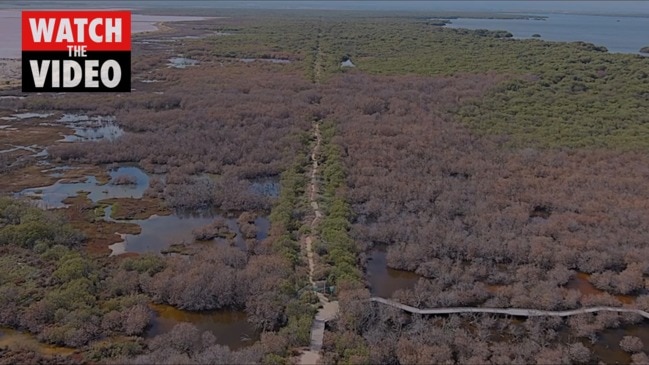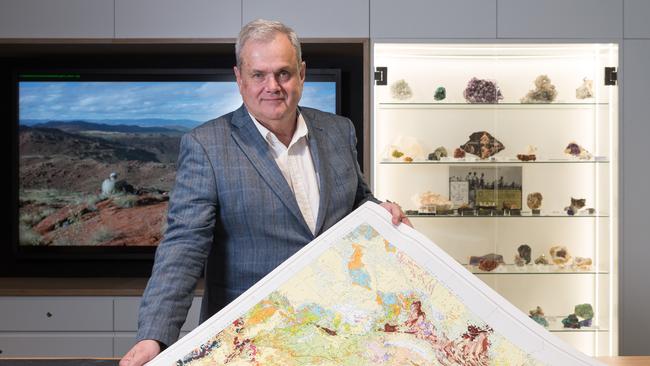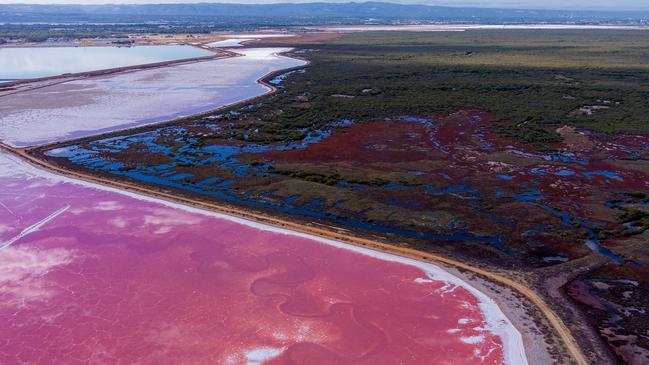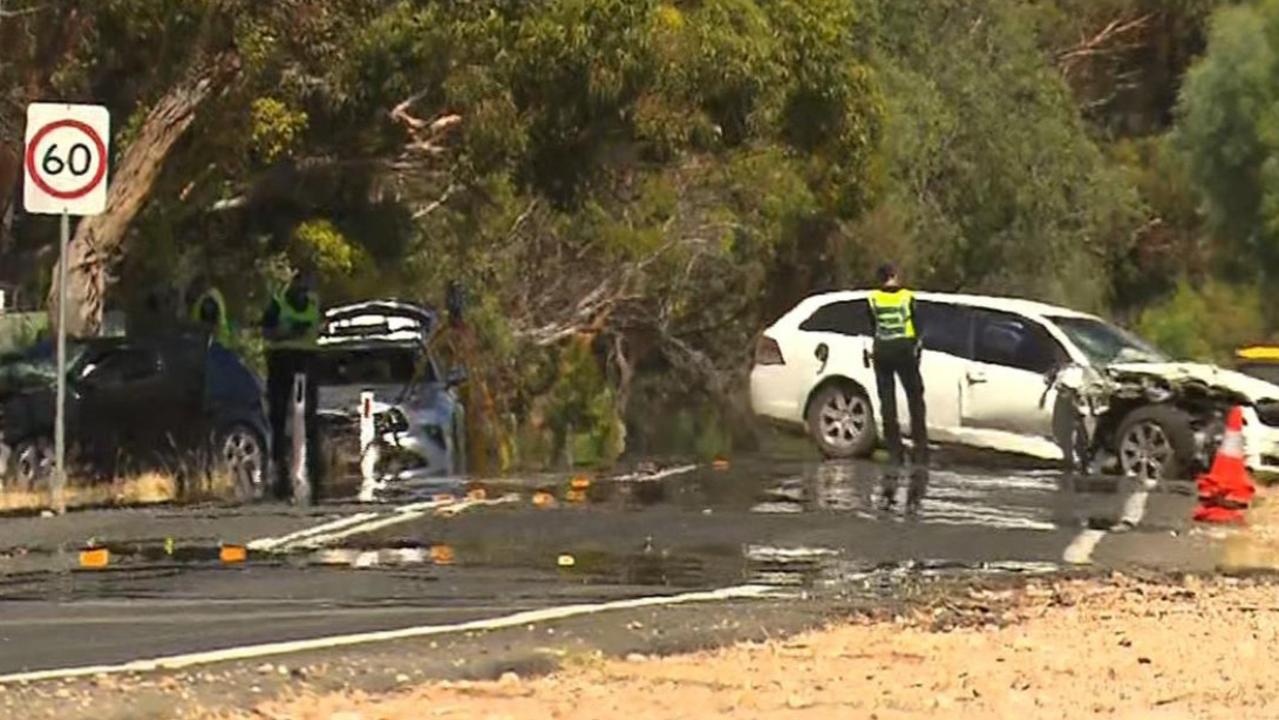St Kilda mangrove dieback report likely to drag into 2022
Investigations into St Kilda’s mangrove dieback are complicated, but point to the salt pan operator ignoring rules, parliament hears.

SA News
Don't miss out on the headlines from SA News. Followed categories will be added to My News.
The investigation into how state government agencies failed to prevent destruction of part of the St Kilda mangroves may not be completed until next year, parliament’s budget and finance committee has been told.
“It’s a complicated scenario,” Energy and Mining Department chief executive Paul Heithersay said on Monday.
Finishing the investigation was “some months away” and would possibly run into 2022, he said.
Extensive dieback of the mangroves followed discharge of highly saline brine from neighbouring defunct salt mining operations.
The department was first notified of the problem in September 2020, mineral resources executive director Alex Blood told the committee.
A clean-up order was issued to site operator Buckland Dry Creek in December last year.

Pumping of brine away from the ponds adjacent to the mangroves ended last week after 50 million litres had been removed to “more stable” areas.
Ms Blood said the operators did not inform the department before it pumped brine into ponds adjacent to the mangroves – a move that led to the discharge that also has threatened the habitat of migratory birds.
The company was operating under a care and maintenance plan.
“Under that plan, they were not to move water within the field,” she said.
“It is our understanding – it is under investigation – that they moved water from northern sections into section two (adjacent to the mangroves).”
Ms Blood said the department was confident enough brine had now been removed so that even during winter rains there will be no further discharge into the mangroves.
The Energy and Mining Department was the lead agency in dealing with Buckland Dry Creek but the Environment Protection Agency and Environment and Water Department also had roles.
Ms Blood took on notice to answer whether concerns had been raised in 2015 that there was a potential risk to the mangroves.
The committee was also questioned about the government’s invitation last week for companies to develop portions of 2000ha of land at Port Bonython, near Whyalla.
The invitation, from Treasurer Rob Lucas, called for expressions of interest in projects which would generate economic growth.
Mr Lucas said Port Bonython was identified as highly prospective as a hydrogen export point but that all projects would be considered on merit.
Mr Heithersay confirmed “it’s not a requirement” for projects to include hydrogen.
“There’s a strong expectation hydrogen companies will be attracted to that area,” he said.
“ … but we want to see what the market’s going to throw up for us.”
Companies have been given six weeks to lodge expressions of interest.

The committee was also told a year ago Energy and Mining Minister Dan van Holst Pellekaan endorsed a plan to make it compulsory for all new air conditioners, pool pumps and electric hot water systems capable of being turned off remotely.
The nation’s energy ministers, including Mr van Holst Pellekaan, had agreed to the idea.
His department was now consulting industry on South Australia adopting the plan earlier than other states, energy section executive director Vince Duffy told the committee.
Asked whether the minister was aware of and had approved the consultation, Mr Duffy said “yes”.
After The Advertiser last month reported this consultation, Mr van Holst Pellekaan was asked on ABC radio whether, in future, appliances would need to have remote control capability.
They would not, and SA was only running a trial of the technology, Mr van Holst Pellekaan replied.
Mr Duffy said the capability would be compulsory and that, perhaps, the minister was confusing trials of the business model of how the capability would work.
After the committee hearing, a government spokesman said it was always the intention for consumers to be able to voluntarily opt into using the remote control capability.
“In order to have that consumer choice, appliances need to have consistent minimum technical capabilities,” the spokesman said.
Industry was given until April 9 to make submissions on the new compulsory standards.
Mr Duffy said these were now being considered.




